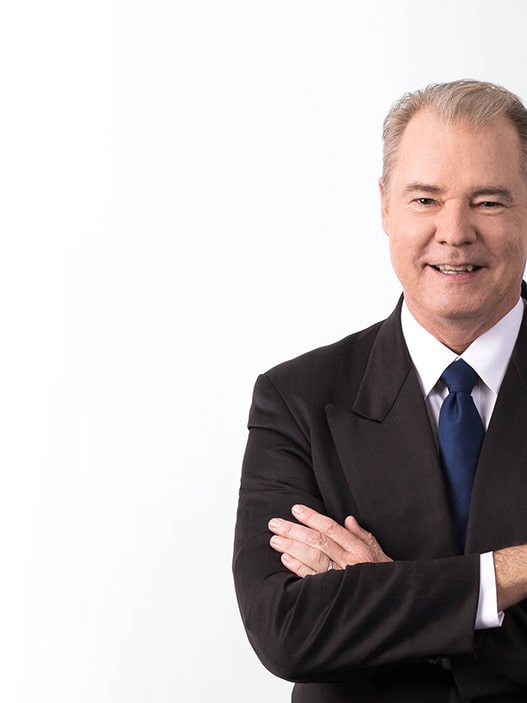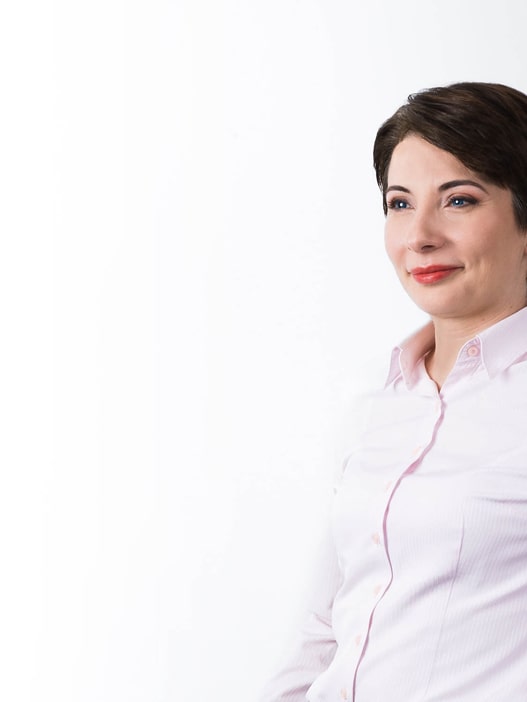“Romania’s Move towards a Decarbonized Future” is the theme of the first edition of Wolf Theiss Energy Summit in Bucharest
Bucharest, 9 November 2023 – The Wolf Theiss hosted event “Romania’s Move towards a Decarbonized Future” brought together important players in the domestic energy power generation market. The conference is the first in a series of events to be hosted by Wolf Theiss throughout its regional offices. The event organised in Bucharest focused on the hot ticket topic of how Romania may achieve a decarbonized energy market over the next decade and beyond.
The summit was structured in two panels. The first panel – Improving energy storage solutions for renewable energy – focused on how traditional renewable energy sources (e.g. wind and solar) can meet baseload electricity demand, through deployment of new technologies and solutions in energy storage and other strategies. Bryan Jardine, Managing Partner of Wolf Theiss Bucharest office and the regional coordinator of the Wolf Theiss renewable energy practice throughout the CEE/SEE region, moderated the panel.
“Since 2020, the ambitious targets adopted by the EU Member States to be achieved by 2030 have proven to be a significant catalyst for the development of renewable energy projects in CEE/ SEE and Romania. According to Ourworldindata.org, Romania has one of the greenest economies in the world: as of the year 2022, over 62% of the energy produced in Romania came from emission-free sources, namely nuclear and renewable sources. This year, Romania could achieve an even higher percentage of green energy as a share of total consumption. Our highly knowledgeable speakers at the WT Energy Summit consisted of public sector representatives, key industry players and legal experts, all brought together with one common goal: to discuss a decarbonized Romania. We are proud that the Wolf Theiss Bucharest office initiated a successful start of the series of Energy Summit that will be hosted in our various offices in the region in 2024“,
says Bryan Jardine.
Rareş Hurghiş, General Manager, Future Energy Leaders (FEL) Romania, spoke about “RES and prosumers in Romania”.
“Renewable energy will play an important role in Romania’s decarbonization path, including here the prosumers. The prosumers sector had the faster growth trajectory compared to all RES sources, reaching approximately 1.2 GW installed capacity, almost equal to the installed nuclear capacity in Romania, and we expect a 5 GW installed capacity by 2030. To ensure a sustainable development of this sector, each potential prosumer should consider an adequate development of its PV system, in order to cover their needs and not oversize the system – this way more customers can become prosumers. We should expect in the near future a limitation of the installed capacity for prosumers as they can create important imbalances in the grid, moreover the grid not being developed for this type of energy actors. Nevertheless, this can enable a new market where existing and future prosumers will install battery storage at their system – in this regard we can expect that future support schemes to also include battery storage facilities. Additionally, there are various synergies between a PV system and battery storage together with heat pumps and electric vehicles – this type of solutions being an import part of the puzzle as regards decarbonization of heating and transport. Last but not least, having an important number of prosumers with battery storage, another type of business can be developed: virtual power plants, which can create various benefits for prosumers when the existing support schemes (e.g. quantitative and financial compensation) will be discontinued”,
declares Rareş Hurghiş.
Olivian Savin, Marketing & Communication Manager, Future Energy Leaders (FEL) Romania, presented the “Pumped Storage Hydropower”.
“In the world of renewable energy, it’s crucial to emphasize the need for coexistence rather than competition among different technologies. Each renewable energy source has its own strengths, and instead of trying to prove one is better than the other, we should acknowledge how they can complement each other. For instance, “water batteries” or pumped storage hydropower have the capacity to store large amounts of energy. This storage ability is incredibly valuable in helping solar and wind technologies increase their power generation, which in turn supports the overall sustainability of Romania’s energy systems. Having a pumped storage hydropower facility in Romania is significant because it provides essential ancillary services that help stabilize the grid and ensure a more reliable energy supply for the entire SEE region. The WT Energy Summit’s outcome was not only informative but also inspiring. It brought together professionals, experts, and stakeholders who share a common commitment to advancing Romania’s transition towards a decarbonized future. The engaging discussions and the diverse perspectives offered by the speakers have undoubtedly contributed to the broader dialogue on sustainable energy solutions“,
declares Olivian Savin.
Liviu Gavrilă, Vice-president Romania Wind Energy Association (RWEA), talked about hybrid projects and how they can be a solution for baseload electricity demand.
“It’s an important milestone and we all must do our best in materializing many of the projects the market prepared these past years. All parts – authorities, investors, financing entities etc. – should continue the dialogue and implement its mandatory steps: fixing regulations, overpassing blockages, find investment predictability and secure tools and ensure resources for these future projects’ operation“,
summarizes Liviu Gavrilă.
Alexandru Bratosin, Project Manager Monsson S.à.r.l., presented the Mireasa Hybrid Power Plant 50MW (Monsson’s integration of Wind, Photovoltaic and Storage in one Hybrid Power Plant).
“I would like to thank Wolf Theiss, I am very impressed and glad to be part of good conversation, initiatives for making the transition to green energy and make energy storage systems more understandable for the people thinking on our green energy future, gathered here on Wolf Theiss initiatives. Professional behaviours, elegant atmosphere, a lot of ideas was in the house with quality information for several great new technologies that any people or skilled engineer will be happy to hear!”,
declares Alexandru Bratosin.
Monsson will commission by end of the year the largest and first Renewable Energy Hybrid Power Plant in Romania. Mireasa Hybrid will have 50MW of Wind Power, 54MW x 4hours Battery Storage and a 35MW PV Plant. Stage 1 of the battery storage unit is in commissioning and has a total capacity of 6MW x 4 hours.
Valentin Bârgău Gheorghiu, VP of Corporate Operations, Restart Energy, focused his speech on Renewable investments, investors and capital markets in Energy.
“Although the energy storage market in Romania is still in its early stages, it is clear for everyone that it’s an integral part of the renewable energy adoption process on a large scale. As any nascent industry, in order to grow, it needs investments and as such in order to attract them we need a clear strategy and strong regulatory environment coupled with strong local players able to develop high quality projects in the space. For us at Restart Energy, storage represents one of the central points in our developing plans. I am glad that I saw a strong commitment towards established solutions as well as innovative ones from all my fellow speakers in the panel and I firmly believe that events like the Wolf Theiss Energy Summit can generate open and authentic discussions on important topics for the energy industry“,
states Valentin Bârgău Gheorghiu.
The second panel – The role of nuclear power in achieving a decarbonized future – was moderated by Adina Aurel, Counsel Wolf Theiss Bucharest office and discussed developments in the nuclear energy market in Romania, including the plans to deploy small modular reactors (SMR).
“Reaching net zero carbon dioxide emissions is a fast-growing, global environmental policy goal. Nuclear energy can be an important way to fill the gaps on the desired pathway to a secure, affordable, clean-energy future. Nuclear power produces zero emissions, is a well-established technology that, with the right approaches, can complement clean energy sources such as wind and solar energy. Nuclear energy can be seen as part of the solution to a net-zero carbon future. Romania is on the path to develop small modular reactor technology (SMR) to supplement conventional nuclear power plants since SMRs can be installed at competitive costs in decommissioned thermal and coal power plant sites by repurposing the site infrastructure. Doiceşti project can be seen as a pioneering project supported by the work of Romanian specialists and with advanced technology capable of ensuring zero emissions“,
states Adina Aurel.
Eli Corso-Phinney, Commercial Officer, Embassy of the United States of America in Romania, spoke about the importance of SMRs for Romania and the region in the context of energy security.
“The U.S. Government is proud to play a role in helping Romania to achieve its green energy goals through nuclear power. Small Modular Reactors (SMR) and other advanced nuclear technologies are critical to the equation because they will allow countries to generate far more carbon-free power at lower cost, while also helping to decarbonize hard to abate sectors such as steel and cement production and other industrial sectors. The United States and Romania’s cooperation on SMRs represents a significant step in our common aims towards a carbon-free future. SMR deployment will create countless new jobs, strengthen European energy security, and address the climate crisis head-on“,
said Eli Corso-Phinney in his introductory speech.
Andrei Rădulescu, Head of SMR department, RoPower Nuclear, presented the status of Doiceşti SMR Project, Europe’s first Small Modular Reactor (“SMR”) nuclear power plant and second in the world, after the SMR project in Idaho Falls, Idaho, USA.
“As the SMR expert at RoPower, the project company overseeing the development of Romania’s first SMR project at the Doiceşti nuclear power plant, my experience as a speaker at the inaugural Wolf Theiss Energy Summit was valuable. It provided a unique opportunity to showcase our progress and exchange insights with a distinguished assembly of industry peers and professionals. The summit not only offered a platform to highlight the significance of our pioneering work in advancing sustainable nuclear energy in Romania and Europe but also fostered collaboration and knowledge sharing among key stakeholders. I am confident that the connections forged, and knowledge gained during the event will contribute significantly to the success of the Doiceşti project and the broader future of SMRs in the region,”
says Andrei Rădulescu.
Teodor Minca, Country Manager Framatome, focused his speech on nuclear energy role in zero emissions.
“Nuclear is back as it provides part of the equation for net zero ambitions. However, we should not take these opportunities for granted; this will happen as long as we commit ourselves all along the value chain. You can count on the engagement and the commitment of Framatome’s teams for your generation of safe and low carbon nuclear energy, now and in the future”,
stated Teodor Minca.
Download PDF in English

